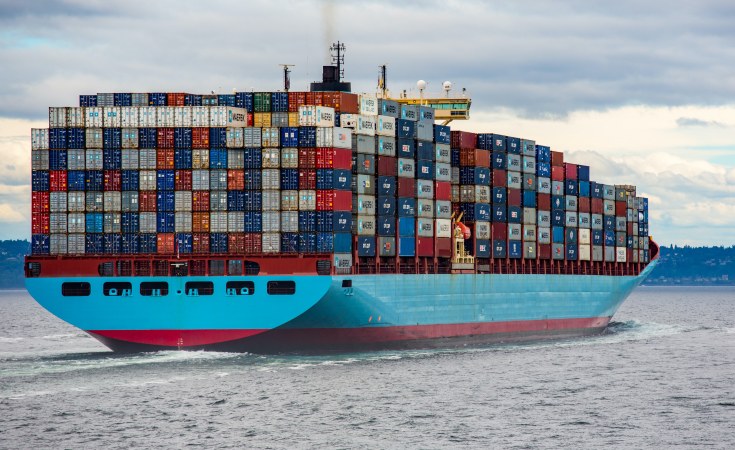Washington — Branching out from the usual bilateral agreements between the United States and individual nations, the Millennium Challenge Corporation (MCC) recently crafted a new type of grant to promote cross-border economic integration and trade between two African countries.
The first so-called regional compact in the amount of $504 million -- $202 million for Benin and $302 million for Niger -- will focus on reducing transportation costs between Benin's Port of Cotonou and Niger's capital of Niamey.
But there's more, said Mahmoud Bah, deputy chief executive officer of the MCC, an independent U.S. agency that has been providing foreign assistance around the world for nearly two decades.
"It will also try to address some of the root causes of maintaining road assets," he said. "In both countries, they've committed to improving road maintenance, so there will be policy and institutional reforms around road maintenance, contributions, how the fund is flowing and how those funds are allocated to roads that actually need to be maintained."
Benin and Niger will contribute a combined total of $15 million to the various projects.
The regional compact also aims to eliminate trade bottlenecks between the two nations and cut down on spoilage from delays, Bah told VOA.
MCC previously invested $1.1 billion in Benin and Niger. Some of that money went toward eliminating procedural constraints affecting the flow of goods through the Port of Cotonou.
The new projects aim to build on progress made.
"We hope that we will connect our previous investment to this new investment," said Bah. "The port of Benin is effectively a model in the region, thanks to the work we jointly did, and this road piece connecting that port to customers, farmers, clients in Niamey along the corridor from Cotonou is the big story here. I truly believe that regional integration is an essential piece of the entire continent's development."
Other grants in the works
In southern Africa, MCC recently signed a memorandum committing Washington and Maputo to pursue a compact later this year to protect Mozambique's coastal areas.
"Mozambique is one country that is faced with extreme adverse effects of climate," said Bah. "Sixty-five percent of Mozambicans live on the coastal part of Mozambique. It has 2,300 kilometers of coast, and it's being pounded every year by heavier and heavier cyclones. In the last five years, Mozambique had four 100-year cyclones -- cyclones that are supposed to happen every hundred years."
About four years ago, Cyclone Idai killed hundreds in Mozambique, Zimbabwe and Malawi and displaced millions in what the United Nations called "one of the worst weather-related catastrophes in the history of Africa."
In Mozambique, Bah also visited mangroves, which are slated for funding in an upcoming MCC compact.
"It's the ecosystem that allows the planet to survive certain climatic impacts, but it's being taken away by these cyclones," he said. "Also, the mangroves themselves are being chopped to make charcoal, but the people that are chopping these mangroves have no other alternatives."
MCC also hopes to help restore an 80-year-old bridge on the brink of collapse and connect small farmers by helping them become more commercially viable.
Eligibility criteria
To receive money from MCC, a country needs to meet the agency's standards on a range of criteria, from good governance to economic freedom.
And even after receiving funds, the criteria need to be respected throughout implementation. For that reason, MCC recently terminated Burkina Faso's grant funding after a military takeover.
"When we see a coup d'etat, especially the military coup d'etat, it calls into question the model and what for us ... is a red line," said Bah. "We cannot face Congress and say, 'We need to support this country,' when in fact we see an attempt or a confiscation of the constitution by a group of military [forces]."
Bah said he hoped the partnership between the two countries would soon be restored, because it was a tough decision for the MCC to stop the work that had already begun.
Meanwhile, MCC is working on signing a compact with Sierra Leone this year to help make electricity cheaper and its energy sector more reliable.
Other potential beneficiaries in Africa include Mauritania, Togo and Gambia. Senegal will be tapped for the next regional compact.
Free money?
MCC started under a Republican administration nearly 20 years ago and has benefited from bipartisan support.
To the skeptics who say there's no such thing as free money, Bah said the only cost of getting an MCC grant is abiding by the agency's model and meeting the eligibility criteria. Otherwise, the grants are not to be repaid.
And to anyone who may be uneasy with taxpayer money being spent overseas, here is one way to look at it, he told VOA.
"When countries grow and have a peaceful transfer of power, where they have a democratically elected government, there is a tendency for that growth to be contagious and for us to spend less money in those countries than the alternative," said Bah.
"So, it's an opportunity for businesses in the U.S. to find frontier emerging markets where they can invest. It's an opportunity for our partner countries to invest in the U.S. To me, it's a win-win situation."


